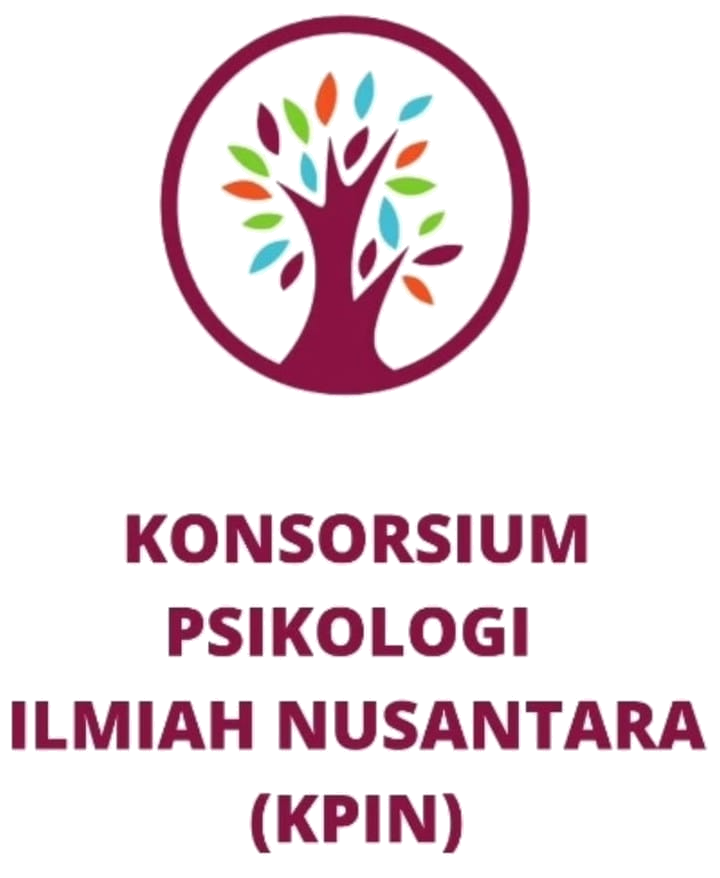Hubungan Intensitas Penggunaan Instagram dan Self -Esteem pada Remaja
DOI:
https://doi.org/10.35814/mindset.v11i01.1297Keywords:
instagram, self-esteem, adolescentAbstract
Photo-based social media like Instagram is popular in young people. But despite its fame, Instagram proved to be a social media that has the worst impact on adolescent’s mental health. One of the negative impact that may result from using social media is a decrease in self-esteem, which is an individual’s evaluation or judgement about himself. In addition, self-esteem has also proven to be a predictor of excessive use of Instagram in adolescents. This study aims to examine the relationship between the intensity of Instagram usage and self-esteem on adolescents. This study was conducted with quantitative methods, correlational analysis. The number of participants is 410 teenagers aged 12 to 21 years (M = 15.38, SD = 1.71), obtained using convenience sampling techniques. The result showed negative correlation between Instagram use and self-esteem. This indicates that the higher the intensity of using Instagram, the lower the self-esteem. Moreover, further analysis indicates different gender and activities in Instagram may have different relation to self-esteem. Implications of this study in adolescent use of Instagram were discussed.
References
Ahadzadeh, A. S. (2017). Self-schema and Self-discrepancy Mediate the Influence of Instagram Usage on Body Image Satisfaction Among Youth. Computers in Human Behavior, 68, 8-16.
Ahuja, V., & Alavi, S. (2017). Cyber Psychology and Cyber Behaviour of Adolescents-the Need of the Contemporary Era. Procedia Computer Science, 122, 671–676.
Ariyani, A. (2004). Perbedaan Hope dan Self-esteem antara Remaja yang Pernah Menggunakan Narkoba dan Remaja yang Tidak Pernah Menggunakan Narkoba (Tesis Pascasarjana, Universitas Indonesia, Depok, Indonesia).
Blease, C. R. (2015). Too Many ‘Friends,’ Too Few ‘Likes’? Evolutionary Psychology and ‘Facebook Depression’. Review of General Psychology, 19(1), 1-13.
Creswell, J. W. (2012). Educational Research: Planning, Conducting, and Evaluating Quantitative and Qualitative Research.Boston: Pearson Education, Inc.
Ellison, N. B., Steinfield, C., & Lampe, C. (2007). The Benefits of Facebook “Friends”: Social Capital and College Students’ Use of Online Social Network Sites. Journal of Computer-Mediated Communication, 12, 1143-1168.
Herring, S. C., & Kapidzic, S. (2015). Teens, Gender, and Self-presentation in Social Media. In J. D. Wright (Ed.), International encyclopedia of social and behavioral sciences, 2nd edition. Oxford: Elsevier.
Instagram users in Indonesia. (2019). Available from https://napoleoncat.com/stats/instagram-users-in-indonesia/2019/01 (diakses pada tanggal 10 Mei 2019).
Jan, M., Soomro, S. A., & Ahmad, N. (2017). Impat of Social Media on Self-esteem. European Scientific Journal, 13(23), 329-341.
Koesdyantho, A. R. (2009). Faktor-faktor yang Berpengaruh terhadap Self-esteem Mahasiswa. Jurnal Ilmiah Widya Wacana, 5(1), 23-37.
Kompas. (2015). Remaja pilih mana, Facebook atau Instagram. Available from https://tekno.kompas.com/read/2015/10/21/15440037/Remaja.Pilih.Mana.Facebook.atau.Instagram. (diakses pada tanggal 10 Maret 2019)
Mehdizadeh, S. (2010). Self-presentation 2.0: Narcissism and Self-esteem on Facebook. Cyberpsychology, Behavior, and Social Networking, 13(4), 357-364.
Mulyani, I., Mikarsa, H. L., & Puspitawati, I. (2018, Maret 23).Perilaku Adiksi pada Instagram di Kalangan Remaja. Dipresentasikan dalam Seminar Nasional Pascasarjana di Universitas Gadjah Mada, Yogyakarta, Indonesia.
Nesi, J., & Prinstein, M. J. (2015). Using Social Media for Social Comparison and Feedback-seeking: Gender and Popularity Moderate Associations with Depressive Symptoms. Journal of Abnormal Child Psychology, 43(8), 1427-1438.
Nyagah, V. W., Stephen, A., & Mwania, J. M. (2015). Social Networking Sites and Their Influence on the Self-esteem of Adolescents in Embu Country, Kenya. Journal of Education Policy and Entrepreneurial Research (JEPER), 20(1), 87-92.
Quatman, T., & Watson, C. M. (2001). Gender Differences in Adolescent Self-esteem: An Exploration of Domains. The Journal of Genetic Psychology, 162(1), 93–117.
Rosenberg, M. (1965). Society and the Adolescent Self-image. New Jersey: Princeton University Press.
Rosenberg, M., Schooler, C., & Schoenbach, C. (1989). Self-esteem and Adolescent Problems: Modeling Reciprocal Effects. American Sociological Review, 54, 1004-1018.
Royal Society for Public Health. (2017). Instagram Ranked Worst for Young People’s Mental Health. Available from https://www.rsph.org.uk/about-us/news/instagram-ranked-worst-for-young-people-s-mental-health.html (diakses pada tanggal 25 Februari 2019)
Sampasa-Kanyiga, H., & Lewis, R. F. (2015). Frequent Use of Social Networking Sites Is Associated with Poor Psychological Functioning among Children and Adolescents. Cyberpsychology, Behavior, and Social Networking, 18(7), 380-385.
Santrock, J. W. (2009). Life-span Development. Boston: McGraw-Hill.
Sherman, L. E., Payton, A. A., Hernandez, L. M., Greenfield, P. M., & Dapretto, M. (2016). The Power of the Like in Adolescence: Effects of Peer Influence on Neural and Behavioral Responses to Social Media. Psychological Science, 1-9.
Tsang, S. K. M., Hui, E. K. P., & Law, B. C. M. (2012). Positive Identity as a Positive Youth Development Construct: A Conceptual Review. The Scientific World Journal, 2012, 1-8.
Valkenburg, P. M., Peter, J., & Schouten, A. P. (2006). Friend Networking Sites and Their Relationship to Adolescents’ Well-being and Social Self-esteem. Cyberpsychology & Behavior, 9(5), 584-590.
Vogel, E. A., Rose, J. P., Roberts, L. R., & Eckles, K. (2014). Social Comparison, Social Media, and Self-esteem. Psychology of Popular Media Culture American Psychological Association, 3(4), 206–222.
Woods, H. C., & Scott, H. (2016). #Sleepyteens: Social Media Use in Adolescence Is Associated with Poor Sleep Quality, Anxiety, Depression and Low Self-esteem. Journal of Adolescence, 51, 41-49.












